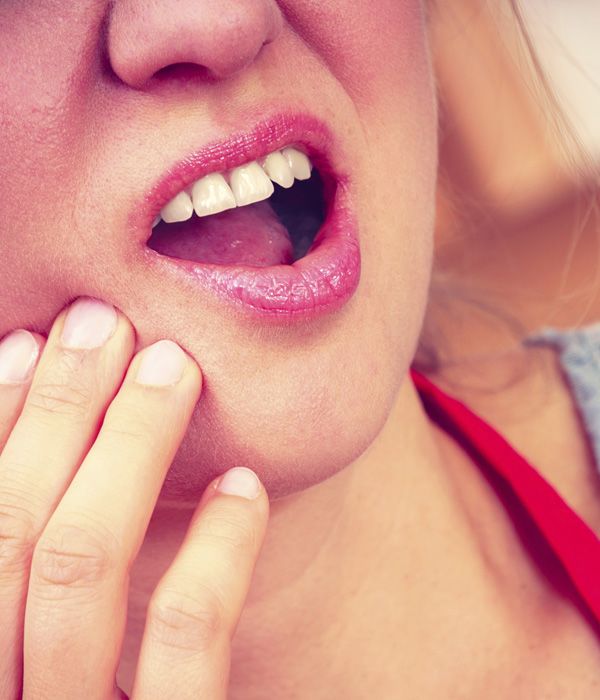Tooth Sensitivity When Chewing
 The main function of the teeth is to bite and chew food so that it can be broken down, so it is no fun when the teeth are sensitive to pressure. Most people occasionally experience some mild sensitivity to hot and cold temperatures. However, tooth sensitivity when chewing is a more serious problem. If the pressure of a bite causes sudden pain or general discomfort, there may be significant structural damage that requires attention.
The main function of the teeth is to bite and chew food so that it can be broken down, so it is no fun when the teeth are sensitive to pressure. Most people occasionally experience some mild sensitivity to hot and cold temperatures. However, tooth sensitivity when chewing is a more serious problem. If the pressure of a bite causes sudden pain or general discomfort, there may be significant structural damage that requires attention.
At Advanced Dentistry of Blakeney, our experienced dentists offer a range of restorative dentistry treatments to restore tooth structure so that patients can enjoy a full range of oral functions free of pain. Patients who are experiencing tooth sensitivity when chewing should contact our Charlotte, NC dental practice to learn more about our treatment options.
Causes of Pressure-induced Tooth Sensitivity
Tooth sensitivity is actually a pretty common complaint. Unfortunately, many patients choose to ignore tooth sensitivity rather than seek treatment. It is important to understand that discomfort when chewing is often a sign of a more serious problem. The teeth are designed to hold the sensitive nerves and tissues on the inner layer of the teeth, where they are protected by a surrounding layer of enamel. When the teeth are strong and healthy, the nerves are protected and patients are able to bite and chew in total comfort. Persistent sensitivity to pressure is the tooth’s way of alerting patients to a dental problem.
Tooth sensitivity when chewing is likely a sign that one of the following dental complications has developed:
- Gum recession: If the gums pull away from the teeth, the roots can become exposed. A tooth’s roots are one of its most sensitive parts. Gum recession, which is a common side effect of gum disease, often leads to discomfort when chewing.
- Root canal infection: If the inner layers of the tooth or its roots are exposed, bacteria can enter these sensitive tissues. A buildup of bacteria may cause inflammation and infection. When a root canal infection is present, patients often develop an abscess, which is a common cause of tooth sensitivity when chewing.
- Dental damage: Any kind of dental damage can wear away the tooth’s protective layer of enamel and expose the sensitive nerves. Dental damage from tooth decay, acid erosion, or oral injury can cause the teeth to become hypersensitive to the pressure of biting and chewing.
All of these oral health problems can progress and continue to cause dental complications. To avoid further issues, it is important to report tooth sensitivity to our experienced dentists so that treatment can be provided.
Eliminate Tooth Sensitivity
Our dentists offer a range of restorative dentistry treatments that address oral health problems while restoring the strength and structure of the teeth. We offer treatments such as dental fillings, dental crowns, root canal therapy, and periodontal treatment to address the most common causes of tooth sensitivity when chewing. We are happy to personalize a treatment plan that will eliminate tooth sensitivity and restore oral comfort.
Schedule an Appointment
Tooth sensitivity when chewing is a warning sign that should not be ignored. If you are dealing with oral pain when you bite or chew, the experienced team of dentists at Advanced Dentistry of Blakeney can help. Schedule an appointment at your earliest convenience to learn more about our restorative dentistry services.


